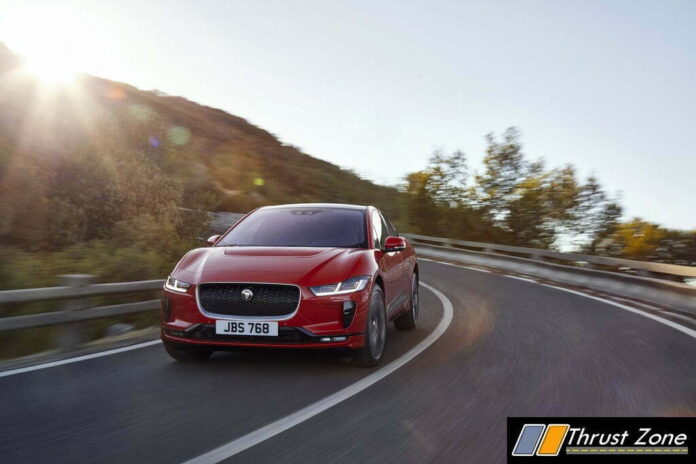Jaguar Land Rover (JLR) is said to be in advanced discussions about the possibility of manufacturing electric vehicles in India. The potential project, which could become JLR’s largest manufacturing plant outside the UK, comes amid ongoing India-UK Free Trade Agreement negotiations. JLR has just one EV in its porfolio now, the Jaguar i-Pace. Range Rover and Jaguar saloons were supposed to get EV powerrtrains. The latter was supposed to be entirely EV. With no details or even spyshot out on the same, it remains to see how truly JLR is late to the party. JLR isn’t the only one. Lexus and Volvo are also late to the party with few models. Germans continue to lead in EV portfolio range. Meanwhile, parent company, Tata Motors, continues to dominate EV space and technology in India.
JLR is exploring the use of Tata Motors’ Avinya range of vehicles, built on the Electrified Modular Architecture (EMA) platform. Initially, the Avinya platform was developed in-house by Tata Motors, but was later changed to adopt JLR’s architecture, leading to a slight delay in the implementation schedule. The project, if approved, is expected to involve a significant investment and could produce at least four models of Tata Motors and JLR vehicles over the next decade.The proposed investment is in line with Tata Group’s broader strategy in electric mobility, with significant support for battery manufacturing through Agratas, a Tata-owned company . This strategic move gives Tata Agratas the ability to supply batteries to JLR if the India-based electric vehicle manufacturing plan comes to fruition.
PB Balaji, Group Chief Financial Officer, Tata Motors, emphasized the strategic importance of adopting JLR’s EMA platform, highlighting its compatibility with the premium positioning of the product line Avinya. Balaji highlighted the potential of the Avinya architecture in creating a line of electric vehicles, signaling Tata Motors’ ambitions to penetrate the global market in the electric vehicle segment.
The EMA platform, designed around the battery, promises advanced features including Software Over the Air (SOTA), Level 2+ battery life and ultra-fast charging technology.Initial production of EMA-based vehicles is expected to begin in late 2024 at JLR’s Halewood plant in the UK, with Tata Motors’ India localization plans aimed at improving competitiveness cost while maintaining premium quality standards.
The partnership between Tata Motors and JLR represents an important step forward in their partnership, following the successful development of an SUV based on the Jaguar Land Rover Freelander’s D8 platform. As negotiations on the India-UK Free Trade Agreement progress, the outcomes of these discussions have implications for both countries’ auto industries and highlight the growing importance of electric mobility in developing future business dynamics.
While the project shows promise in enhancing India’s position in the global electric vehicle market and spurring economic growth, stakeholders are awaiting further clarification on the completion of the Trade Agreement. India’s Free Trade with the UK and the green light for this ambitious undertaking.



